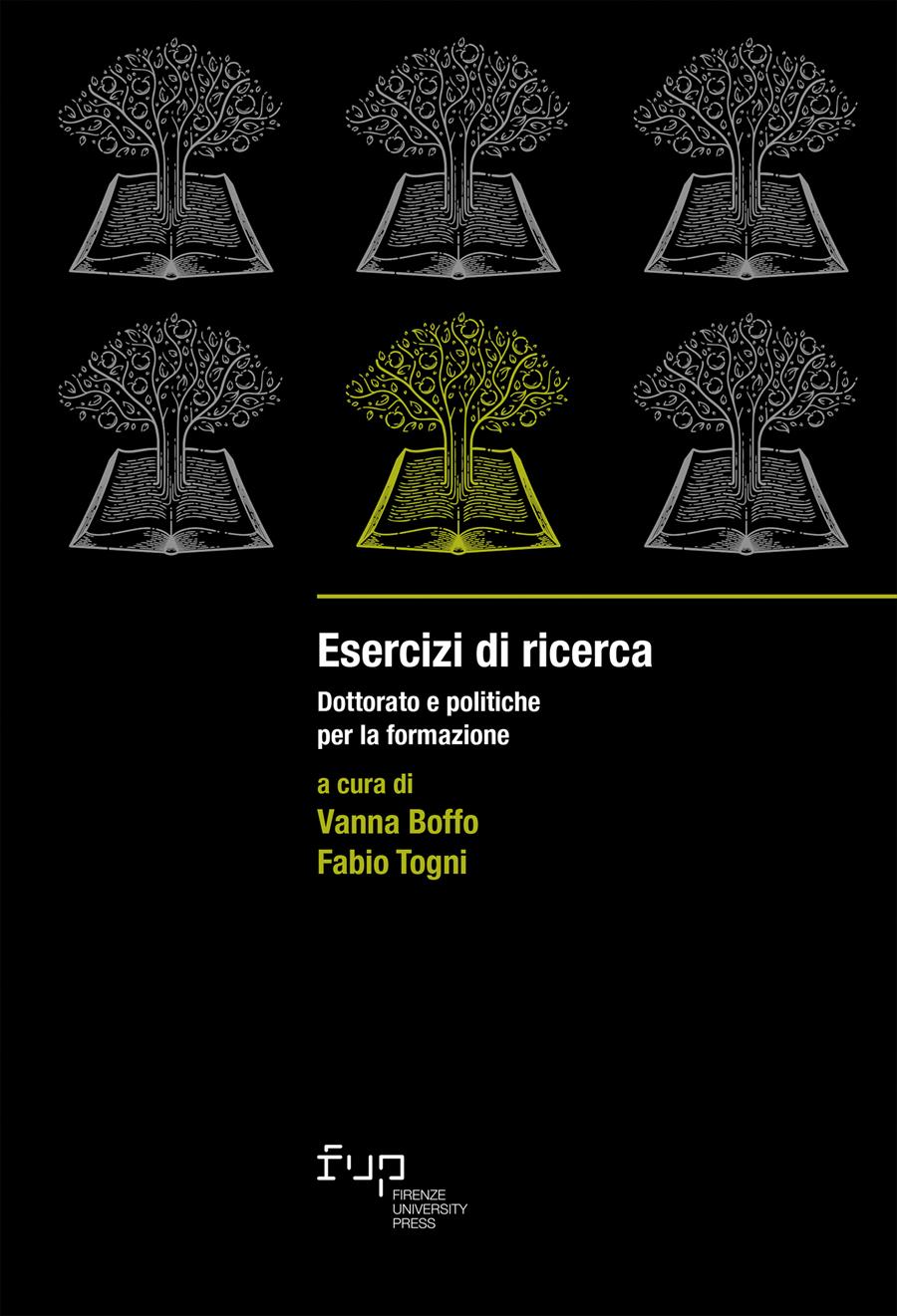- Esercizi di ricerca
- Edited by Vanna Boffo, Fabio Togni
Finalità e modi della valutazione: primi risultati di un’indagine su concezioni e strategie valutative dei docenti delle scuole italiane
- Irene Dora Maria Scierri
- © 2022 Author(s) |
- CC BY 4.0
- DOI: 10.36253/979-12-215-0081-3.21
Teachers’ assessment concepts and strategies play an important role, due to their effects on students’ learning outcomes and ability to learn independently. The literature gives ample space to ‘formative assessment’ as an approach that supports the teaching-learning process. However, within more recent docimological reflection, it is possible to identify approaches involving different degrees of student involvement in the assessment process, which have been less investigated, especially from an empirical point of view. This is the background for the present research, which attempts to focus on assessment concepts and strategies in relation to learners’ involvement. The study presents the first results of a survey currently involving more than 1,500 Italian primary and secondary school teachers, bringing out assessment concepts and implemented strategies.
- Keywords:
- Assessment as Learning,
- Assessment for Learning,
- Assessment Strategies,
- Formative Assessment,
- Teachers’ Conceptions of Assessment,
University of Florence, Italy - ORCID: 0000-0003-4338-0130
- Assessment Reform Group. 2002. Assessment is for Learning: 10 Principles. Research-based Principles to Guide Classroom Practice. <https://assessmentreformgroup.files.wordpress.com/2012/01/10principles_english.pdf> (2022-12-15).
- Boud, David. 2000. “Sustainable Assessment: Rethinking Assessment for the Learning Society.” Studies in Continuing Education 22 (2): 151-67.
- Boud, David, and Rebeca Soler. 2016. “Sustainable Assessment Revisited.” Assessment & Evaluation in Higher Education 41 (3): 400-13.
- Brown, Gavin T.L. 2004. “Teachers’ Conceptions of Assessment: Implications for Policy and Professional Development.” Assessment in Education 11: 301-18.
- Brown, Gavin T.L. 2006. “Teachers’ Conceptions of Assessment: Validation of an Abridged Instrument.” Psychological Reports 99 (1): 166-70.
- Chacón, Carmen T. 2005. “Teachers’ Perceived Efficacy Among English as a Foreign Language Teachers in Middle Schools in Venezuela.” Teaching and Teacher Education 21: 257-272.
- Cizek, Gregory J. 2010. “An Introduction to Formative Assessment.” In Handbook of Formative Assessment, edited by Heidi L. Andrade, and Gregory J. Cizek, 3-17. New York: Routledge.
- Creswell, J.W., e V.L. Plano Clark. 2018 (2006). Designing and Conducting Mixed Methods Research. Thousand Oaks: SAGE.
- Cronbach, Lee J. 1951. “Coefficient Alpha and the Internal Structure of Tests.” Psychometrika 31: 93-96.
- Crooks, Terry. 2011. “Assessment for Learning in the Accountability Era: New Zealand.” Studies in Educational Evaluation 37 (1): 71-77.
- Earl, Lorna M. 2013 (2003). Assessment as Learning: Using Classroom Assessment to Maximize Student Learning. Thousand Oaks: Corwin.
- Lam, Ricky. 2016. “Assessment as Learning: Examining a Cycle of Teaching, Learning, and Assessment of Writing in the Portfolio-based Classroom.” Studies in Higher Education 41 (11): 1900-17.
- Levin, Barbara B., He Ye, and Melony H. Allen. 2013. “Teacher Beliefs in Action: A Cross-Sectional, Longitudinal Follow-Up Study of Teachers’ Personal Practical Theories.” The Teacher Educator 48 (3): 201-17.
- Martini, Angela. 2008. “L’accountability nella scuola.” Programma Education Working Papers 8. Torino: Fondazione Giovanni Agnelli.
- McDonald, Roderick P. 1999. Test Theory: A Unified Treatment. New York: Psychology Press.
- McKown, Clark, and Rhona S. Weinstein. 2008. “Teacher Expectations, Classroom Context and the Achievement Gap.” Journal of School Psychology 46 (3): 235-61.
- Mui So, Winnie W., and Theodore T. Hoi Lee. 2011. “Influence of Teachers’ Perceptions of Teaching and Learning on the Implementation of Assessment for Learning in Inquiry Study.” Assessment in Education: Principles, Policy & Practice 18 (4): 417-32.
- Pajares, M.F. 1992. “Teachers’ Beliefs and Educational Research: Cleaning up a Messy Construct.” Review of Educational Research 62 (3): 307-32.
- Thompson, Alba G. 1992. “Teachers’ Beliefs and Conceptions: A Synthesis of the Research.” In Handbook of Research on Mathematics Teaching and Learning, edited by Douglas A. Grouws, 127-46. New York: MacMillan.
Chapter Information
Chapter Title
Finalità e modi della valutazione: primi risultati di un’indagine su concezioni e strategie valutative dei docenti delle scuole italiane
Authors
Irene Dora Maria Scierri
Language
Italian
DOI
10.36253/979-12-215-0081-3.21
Peer Reviewed
Publication Year
2022
Copyright Information
© 2022 Author(s)
Content License
Metadata License
Bibliographic Information
Book Title
Esercizi di ricerca
Book Subtitle
Dottorato e politiche per la formazione
Editors
Vanna Boffo, Fabio Togni
Peer Reviewed
Number of Pages
278
Publication Year
2022
Copyright Information
© 2022 Author(s)
Content License
Metadata License
Publisher Name
Firenze University Press
DOI
10.36253/979-12-215-0081-3
ISBN Print
979-12-215-0094-3
eISBN (pdf)
979-12-215-0081-3
eISBN (xml)
979-12-215-0082-0
Series Title
Studies on Adult Learning and Education
Series ISSN
2704-596X
Series E-ISSN
2704-5781
